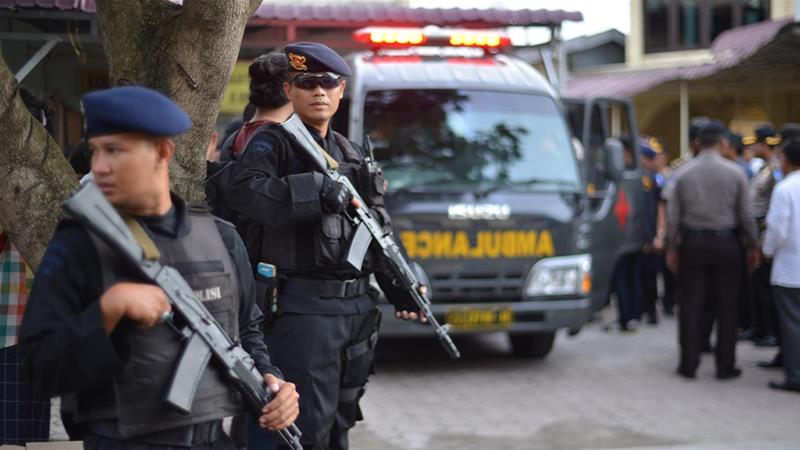Indonesia has suffered a number of attacks by groups claiming loyalty to ISIL and is sharply divided on repatriation.
Indonesia has said it will not bring home nearly 700 hundred nationals who joined the ISIL (ISIS) group in the Middle East for security reasons but might consider repatriating young children.
Security affairs minister Mahfud MD said that some 689 Indonesians – including women and children – in Syria would not be allowed to return home.
“We’ve decided that the government has to provide security assurance to 267 million Indonesian citizens,” the minister said Tuesday, after a meeting with President Joko Widodo who is commonly known as Jokowi, near Jakarta.
“If these foreign terrorist fighters return home they could become a dangerous new virus,” he added.
The government would consider repatriating children 10 years old or younger on a “case by case basis”, he added, without elaborating.
Indonesia has suffered a number of attacks by groups claiming loyalty to ISIL and the issue of repatriation has sharply divided the world’s biggest Muslim majority. Jokowi said this week that he was not in favour of bringing back the fighters and their families.
Experts say if they were repatriated they would need to be rehabilitated and carefully monitored.
“If they’re not managed well by the government, there is a possibility they’ll be used as proxies by powerful groups that could threaten Indonesia and other countries,” said terrorism expert Taufik Andrie.
In 2018, a family of suicide bombers from an ISIL-linked group detonated explosives in several churches in the country’s second-largest city Surabaya, killing more than a dozen people.
Last year, two people who also claimed ISIL links tried unsuccessfully to kill Indonesia’s chief security minister, while in November a suicide bomber blew himself up at a busy police station, killing himself and injuring at least a dozen people.













![Hotstar Premium Cookies 2019 [*100% Working & Daily Updated*] Hotstar Premium Cookies 2019 [*100% Working & Daily Updated*]](https://tahav.com/wp-content/uploads/2019/11/Hotstar-Premium-Cookies-Free-100x70.jpg)



